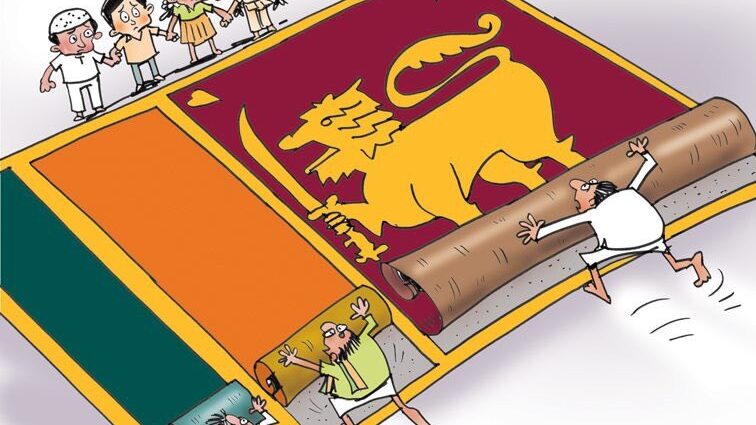The perennial ‘national question’ of how state power should be organised has preoccupied much of Sri Lanka’s colonial and post-independence history. Through decades of political instability and ethnic conflict, successive governments have repeatedly failed to develop power-sharing proposals acceptable to all parties and communities. Failures to arrive at satisfactory consensus have come at the cost of living. For example, in September 1959 a Buddhist monk, dissatisfied with perceived state concessions to the Tamil population, assassinated S.W.R.D. Bandaranaike. Arguably, the lack of a political consensus also led to civil war.
Attempts at constitutional reform, have included the 45-member Mangala Moonesinghe Select Committee (1991-93), the 1984 and 1989 All Party Conferences, the Thimpu Discussions, the Indo-Lanka Accord, the Delhi Accord, and the ‘Union of Regions’ package (1995) under Chandrika Kumaratunga. Despite the universally acknowledged importance of constitutional reform in ending the ethnic conflict, a satisfactory political solution did not emerge from these attempts, and the civil war in Sri Lanka continued.
In this context, former President Mahinda Rajapaksa appointed the All Party Representatives Committee (APRC) in July 2006 to develop constitutional reform proposals that would represent a political consensus on power-sharing. The founding of this committee was perceived by many as a historical moment for Sri Lanka. It was described to local and international audiences as the home-grown ‘Southern Consensus,’ and involved as many as 15 political parties.
In May 2009, the military conflict between the Sri Lankan state and the secessionist LTTE ended. The APRC presented its proposals to Rajapaksa in August 2009, shortly after the end of the war. The final report was compiled during three years of deliberation and 128 meetings. It incorporated input from a Panel of Experts appointed by Rajapaksa to aid the process. It contained a promising set of proposals for constitutional reform and power-sharing that deserves recognition as a viable step forward in arriving at a political solution to Sri Lanka’s ethnic conflict.
BUT… despite the excitement generated at the inception of the APRC, the production of several notable interim outputs, and the long hours and immense collective effort expended – the project would come to nought. At the end of the war, the final report was not released officially and the committee was ultimately forgotten.
This documentary traces the excitement, the frustration, the disillusionment of political actors and lawyers who are trying to push forward what they believe is the critical progressive reform that Sri Lanka needs in order to achieve genuine reconciliation and true harmony.
It explores the unique prospect Sri Lanka had for transformation after the end of the civil war, but also the lost opportunities, through interviews with key APRC and Expert Panel representatives, the APRC chairman, and other political actors and citizens who are deeply affected by the movements of power around them. In doing so, it also explores the depth of political deceit in Sri Lanka.

